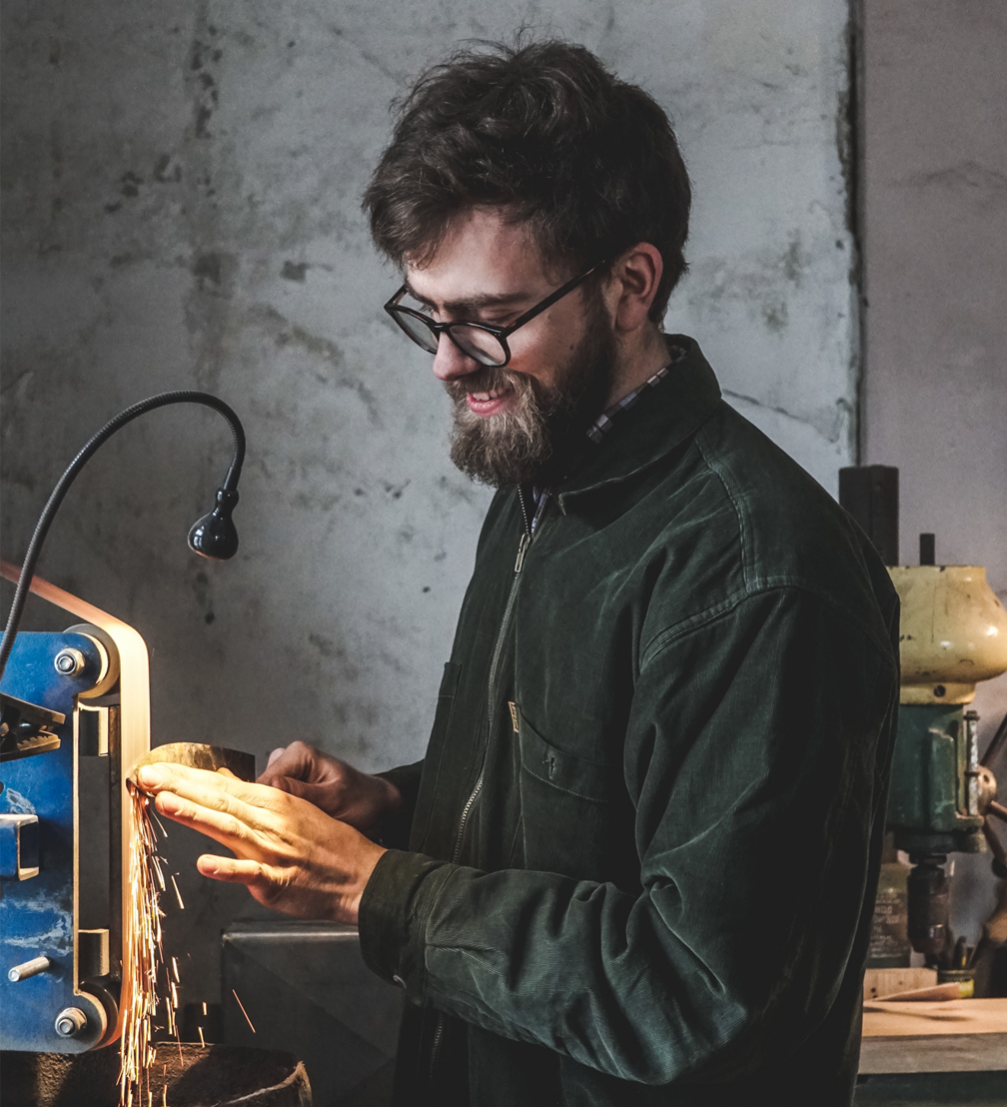
The «Karl Walter Tools» brand is run by Krišjānis Grīnbergs in a small smithy near Cēsis. He taught himself blacksmithing by watching Youtube and reading about metallurgy. Krišjānis not only makes knives for chefs, travellers and hunters in Latvia, but now also ships them to Scandinavia, Western Europe and the US.
Krišjānis started blade-smithing as a hobby to counter the hectic everyday life. «I first became inspired when I watched a Youtube video of a Polish man showing how he’s making a knife in his shed and telling about the process in broken English. So, I went to my own shed. And I made a knife. It turned out not too pretty or practical. Nevertheless, had a feeling I can make a better one,» Krišjānis tells about the beginning of his knife-making.
He has developed his craft by reading books about metallurgy, design and other knife-making related processes, consulting with experts abroad and testing the knowledge in practice. Krišjānis has built most of his equipment, including the furnace, himself.
«The brand «Karl Walter Tools» was born a couple of years later. When I was visiting my grandmother, I found out my great-grandfather was an excellent blacksmith. He forged axes and other tools. His name was Karl Walter, so I decided to name the brand in his honour, symbolically continuing his work,» Krišjānis tells.
When designing his knives, Krišjānis has been inspired by traditional Japanese knives, as well as from the clean design and temperance of Scandinavia. The colours are often based in nature: «Once in a while I would make a knife with a handle that has the colours and proportions resembling a bird, like a thrush or a flamingo.»
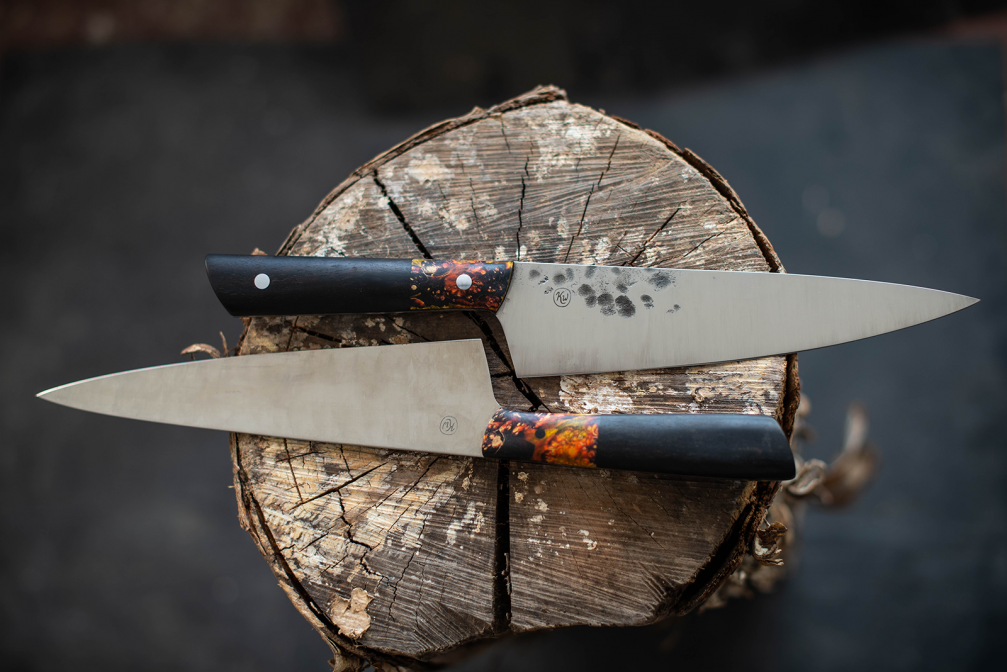
Krišjānis orders high quality steel from Germany, Sweden and Japan and uses extraordinary materials for the handles — mammoth jawbone fossils from the Russian taiga, fossilised oak from the depths of Daugava, wood from South America and tropical Africa.
Some of the «Karl Walter Tools» knives are forged, then polished, quenched, polished again, sharpened and then joined with a handle. However, most of the stainless super-steel is cut from sheets of a certain thickness in order to maintain the high durability of the material, skipping the forging. Since last year Krišjānis uses liquid nitrogen in quenching, in addition to a digitally controlled forge.
«I like to work individually with every client. In the beginning we agree on and make a really cool knife, after a while of using it the client develops new criteria, habits and then we can adjust and improve the knife. It is an added value that is difficult to achieve with industrially made products. You have an author to come back to. You can co-create,» Krišjānis reflects on the collaboration with clients.
«Karl Walter Tools» also offers knife-making workshops. You can view, order and buy the knives in their Etsy store or Instagram account.
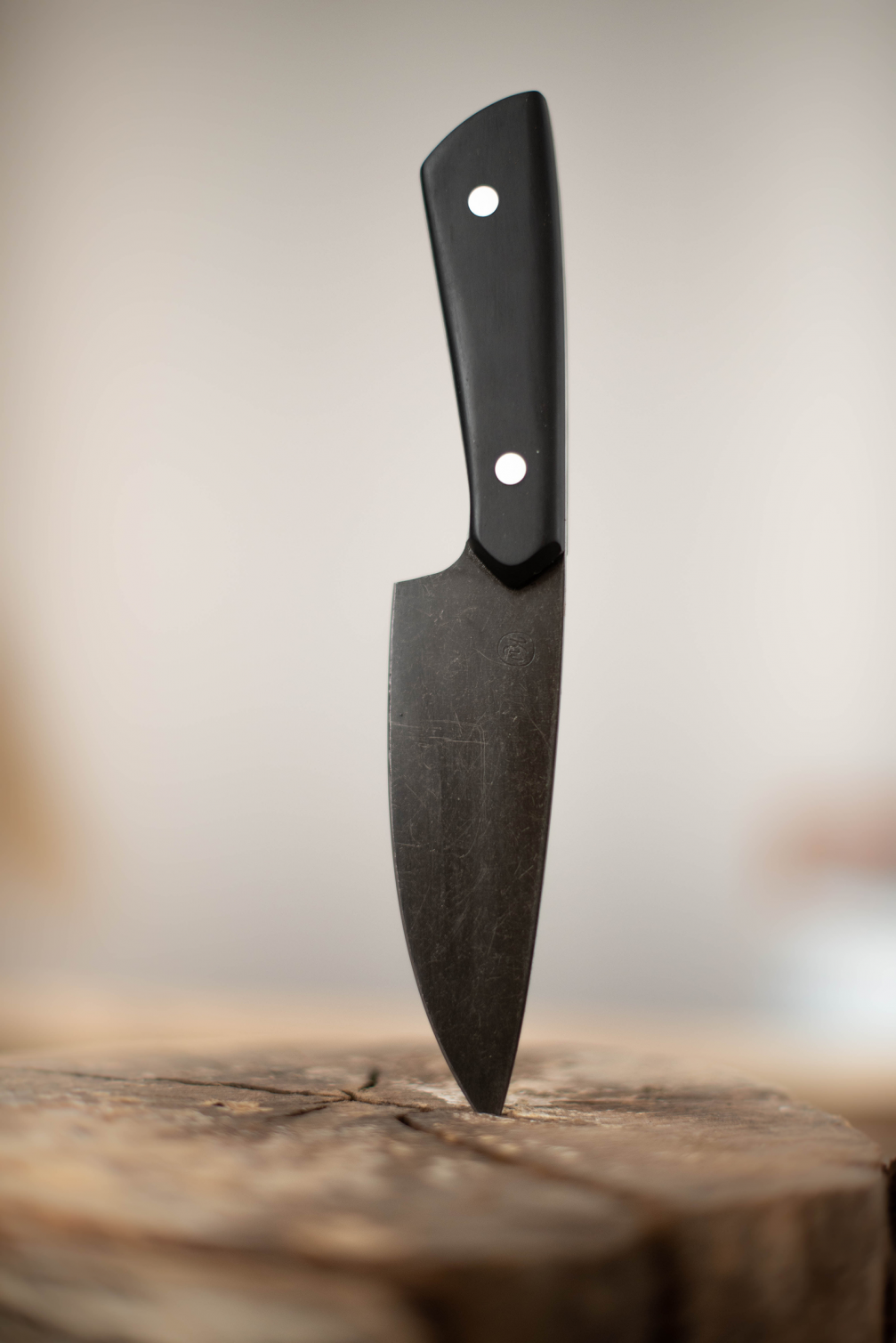
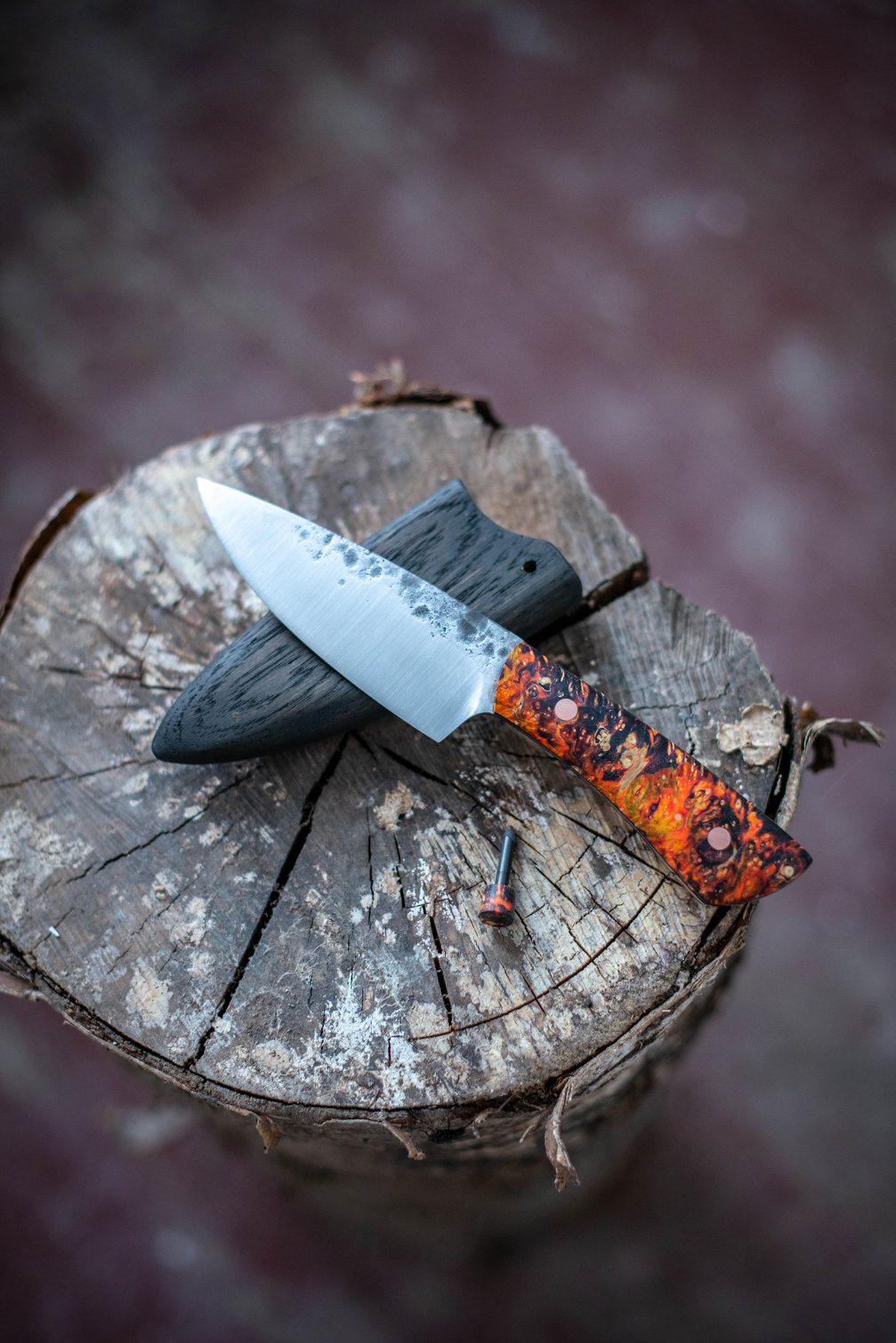
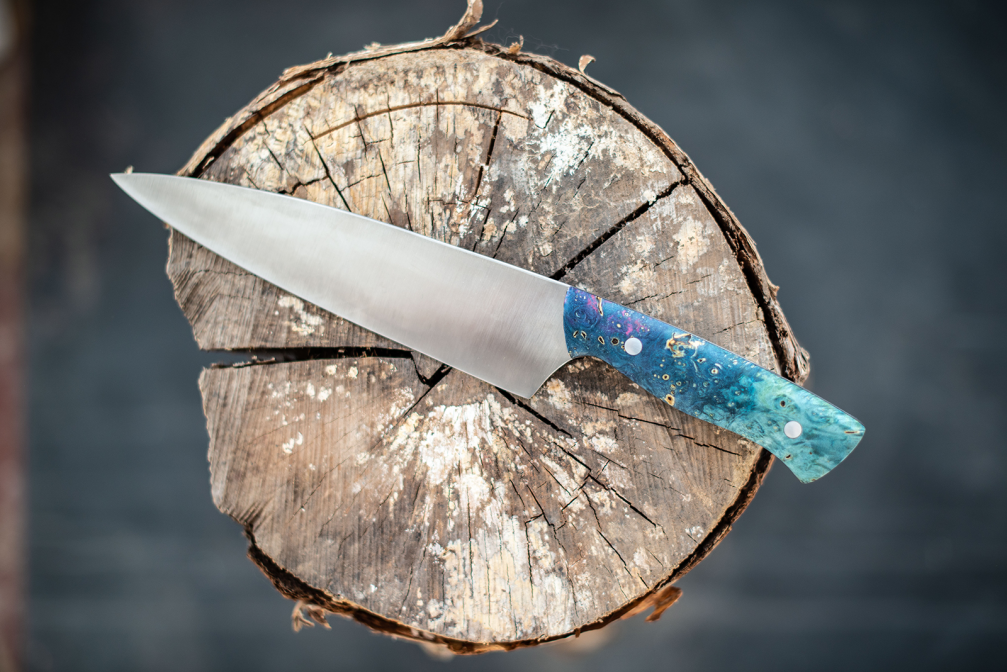
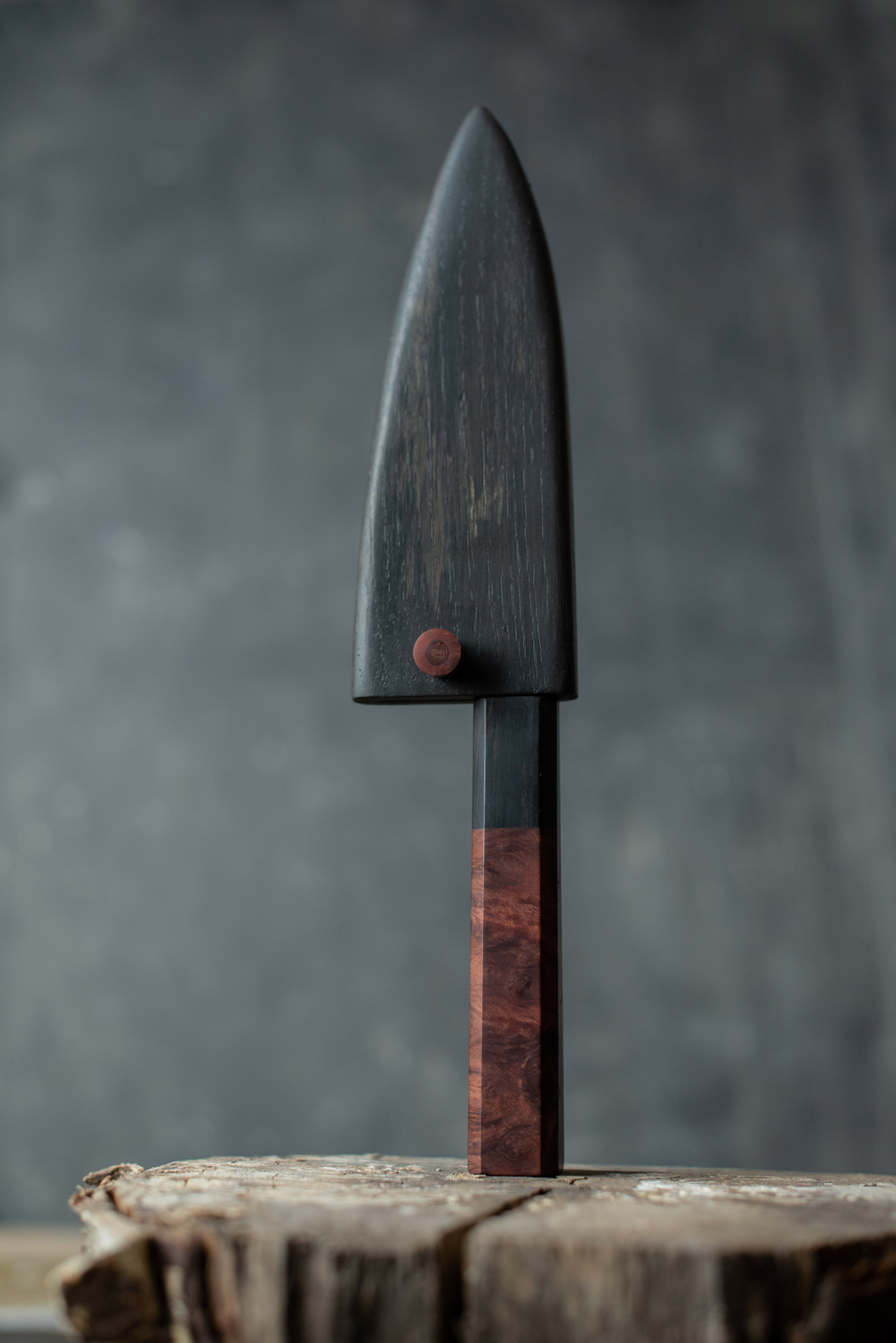
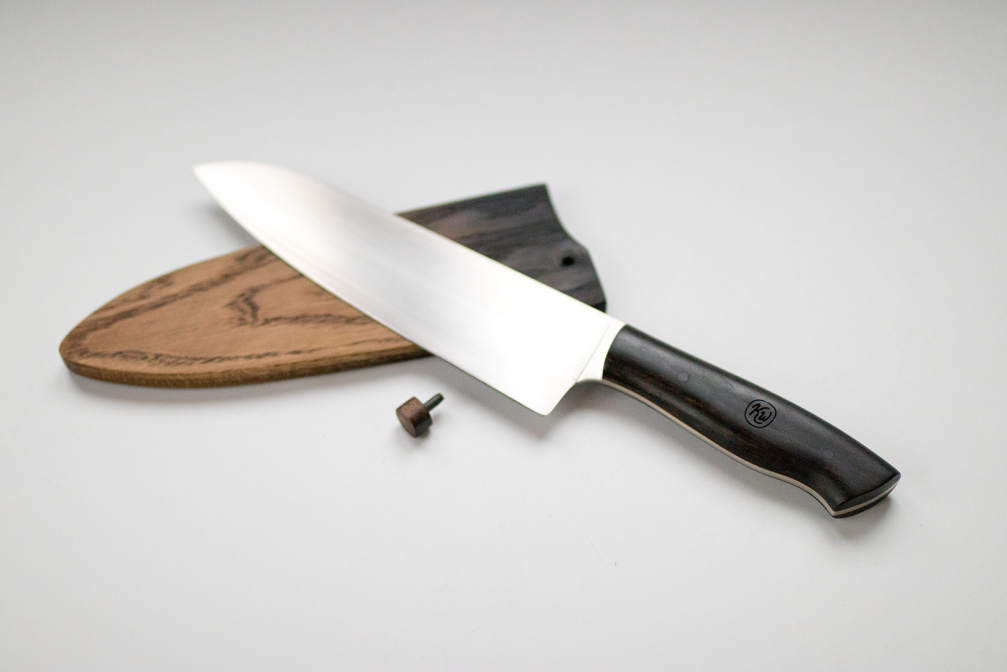
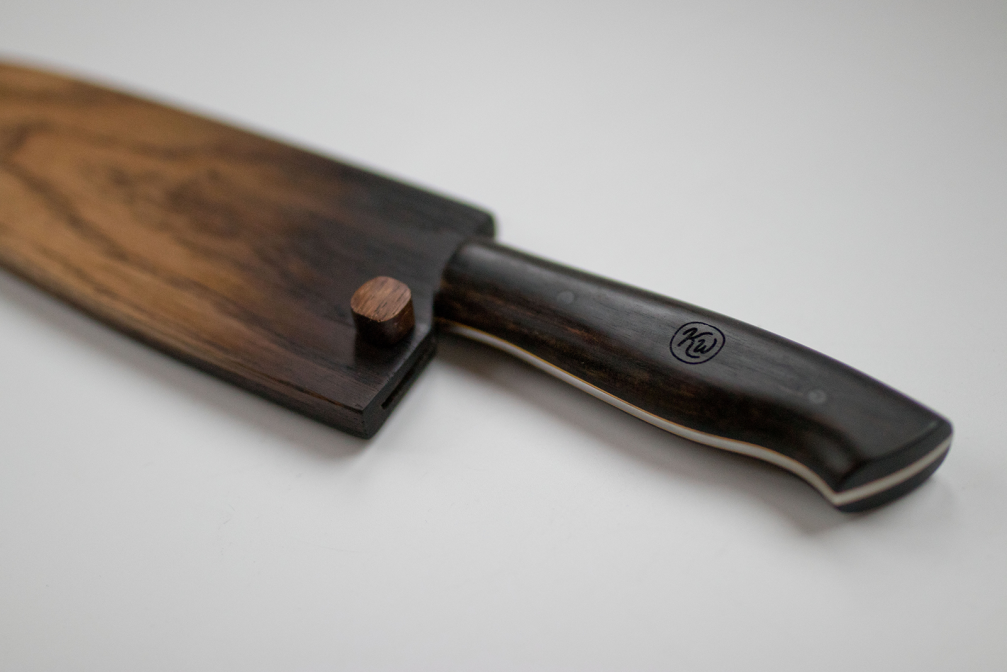
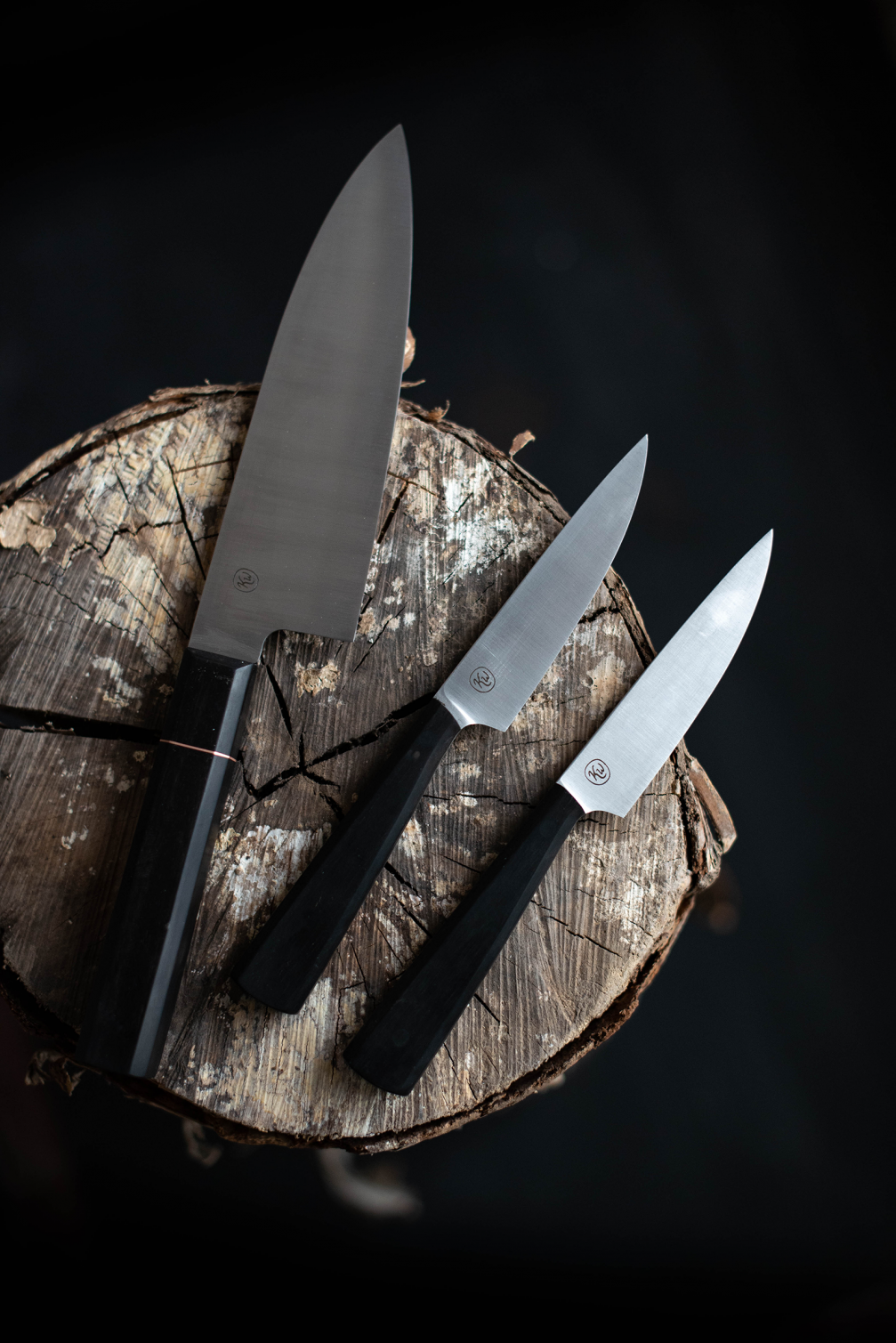
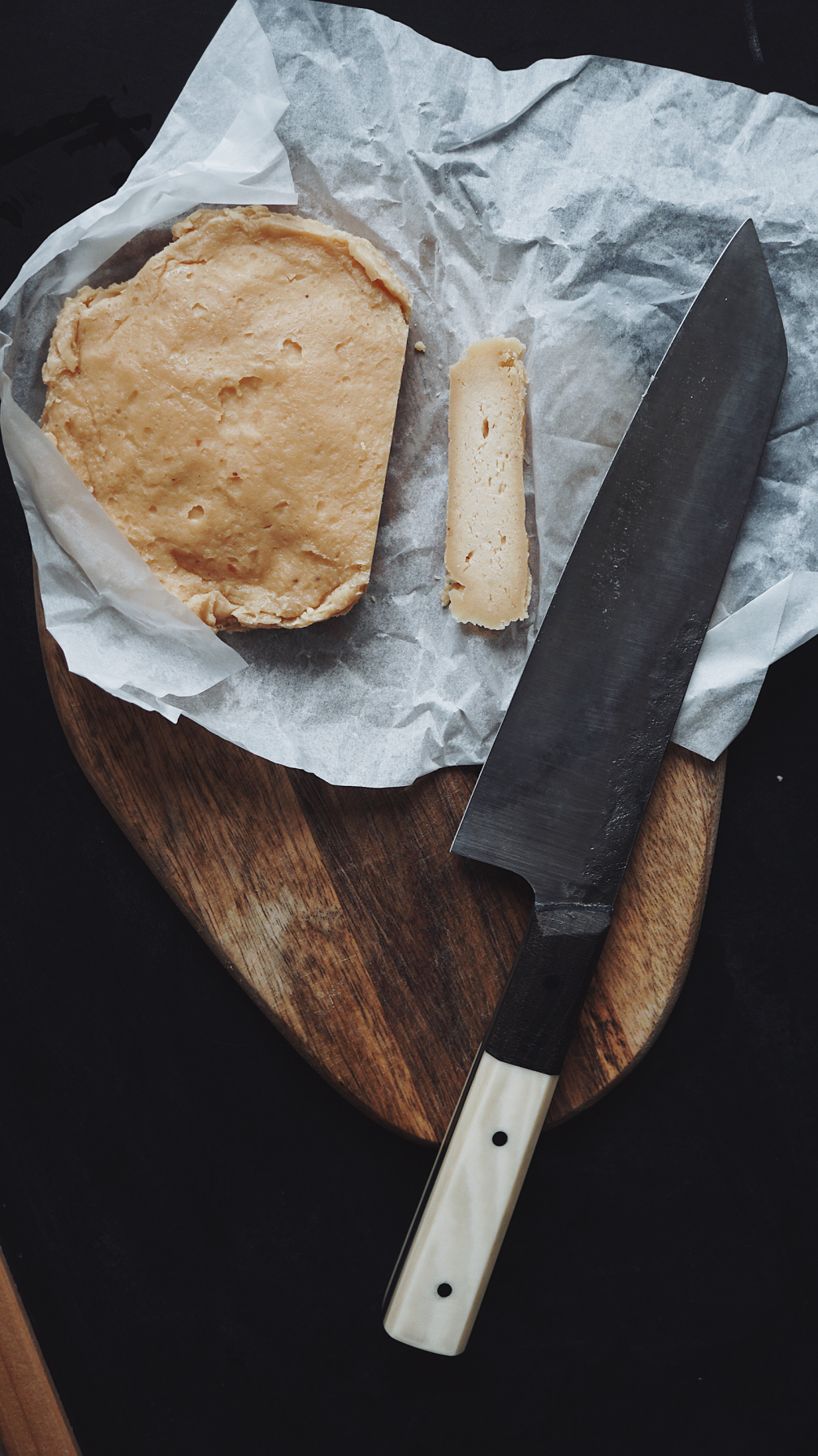
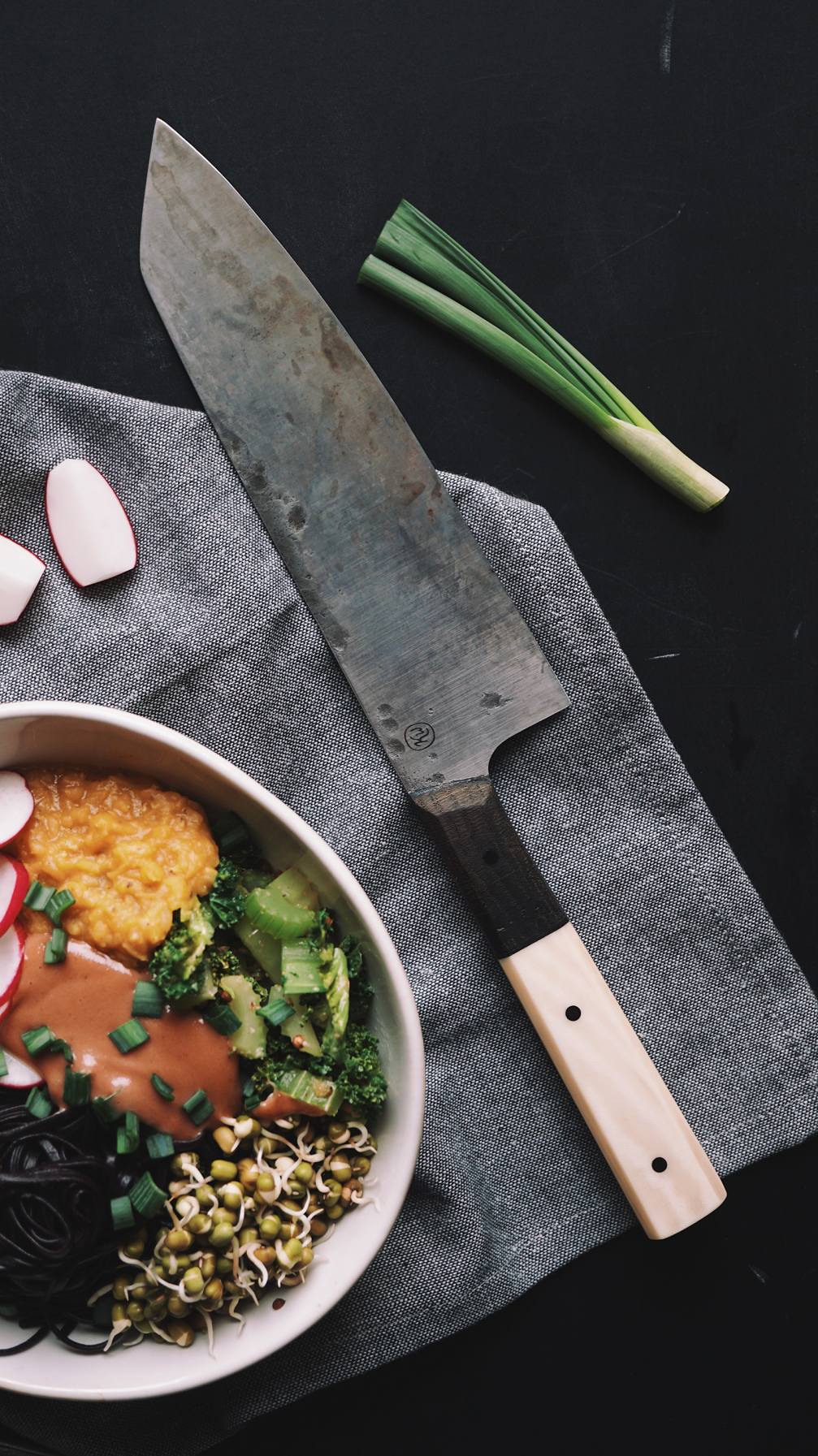
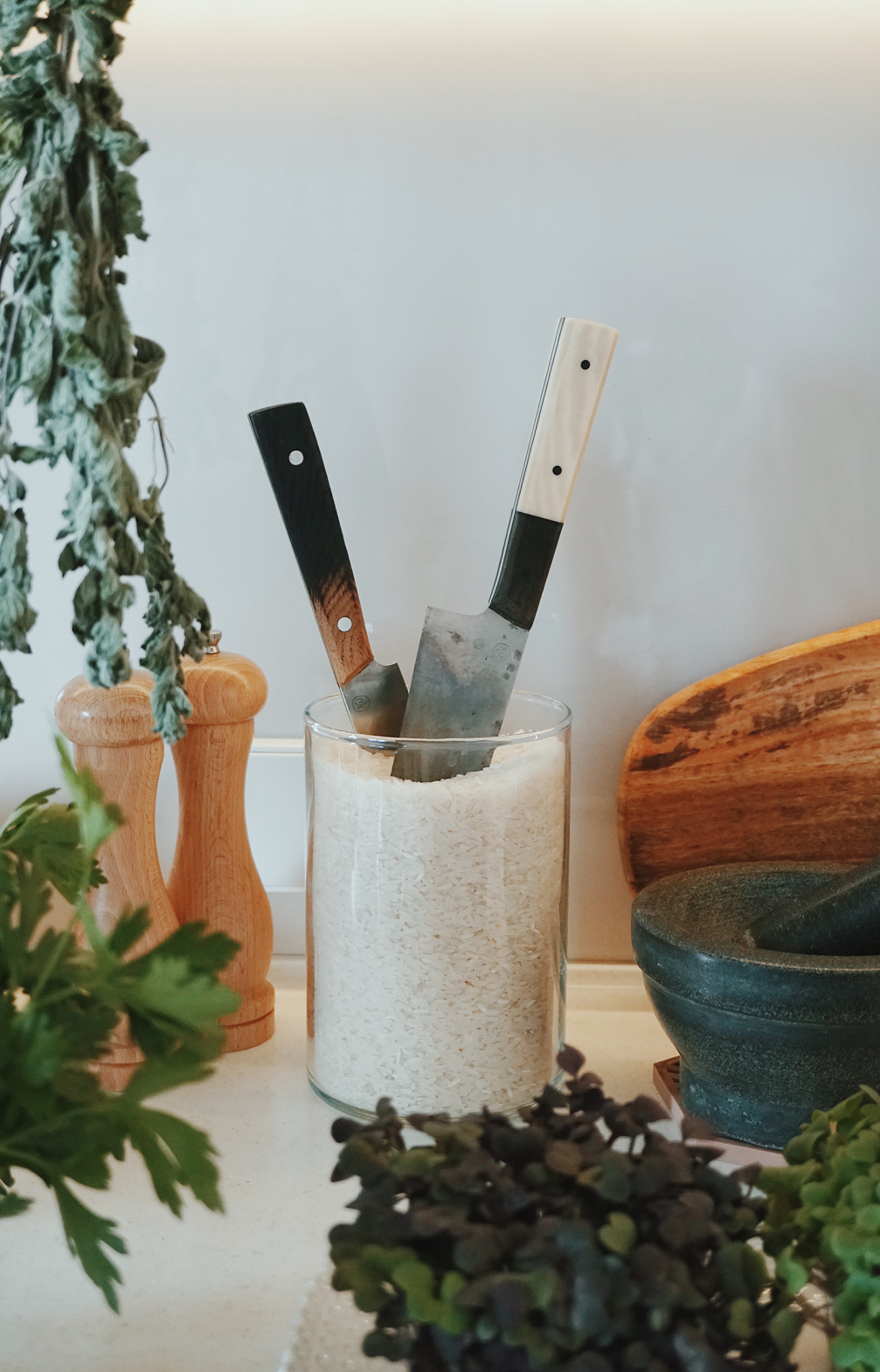
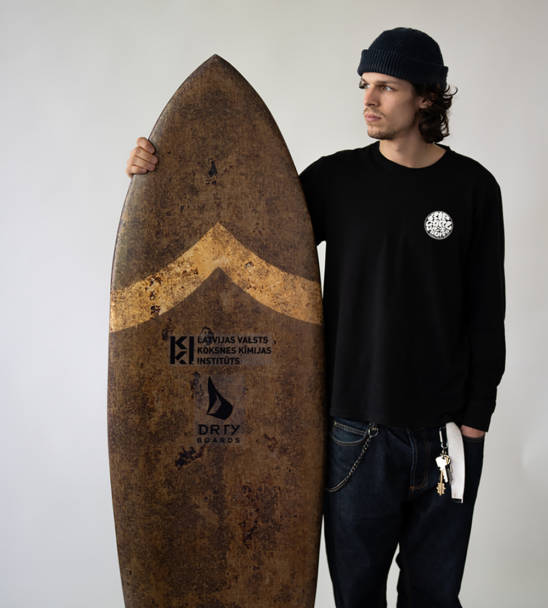
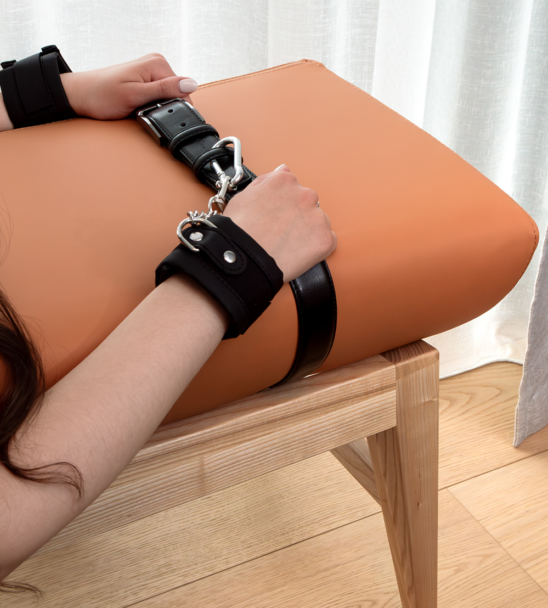
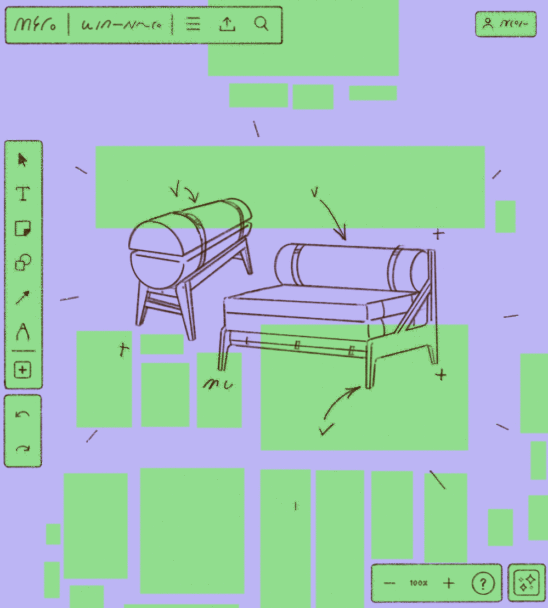
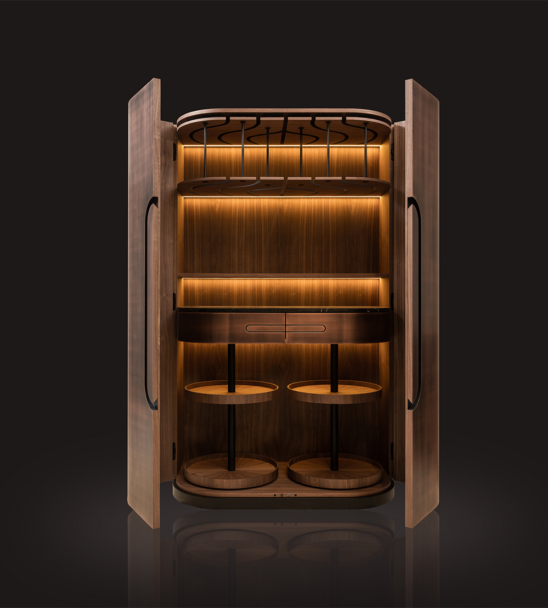
Viedokļi